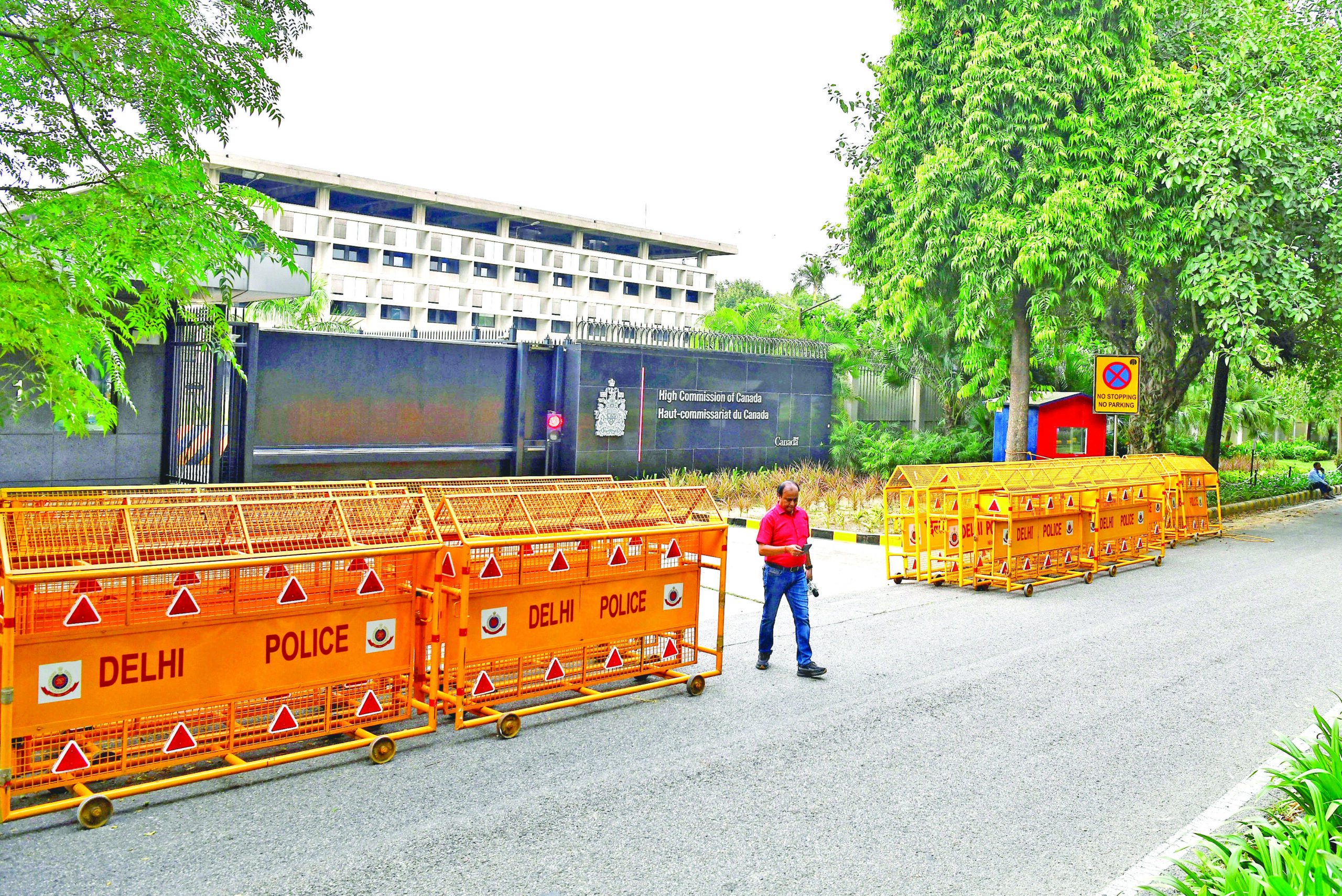
Amid the ongoing tensions between India and Canada, the Ministry of External Affairs on Thursday said that the allegations by the Canadian government are “primarily politically driven”, emphasising parity in numbers when it comes to mutual diplomatic presence. During a press conference in New Delhi, MEA spokesperson Arindam Bagchi said, “Yes, we’ve informed the Government of Canada that there should be parity in strength in our mutual diplomatic presence. Their number is very much higher than ours in Canada… I assume there will be a reduction from the Canadian side.” Bagchi then went on to add, “Yes, I do think there is a degree of prejudice here. They have made allegations and taken action against them. To us, it seems that these allegations by the government of Canada are primarily politically driven.” When asked about allegations levelled by Canada, MEA Spokesperson Bagchi said, “Yes, these allegations were raised by Canadian Prime Minister Justin Trudeau with Prime Minister Narendra Modi…PM rejected them.”
India on Thursday suspended issue of visas to citizens of Canada “till further notice”. A notice by BLS International—a private agency hired for initial scrutiny of visa applications of Canadian nationals—read “Due to operational reasons… Indian visa services have been suspended till further notice”.
This notice comes on the heels of an international row over Ottawa’s claim that it had “credible allegations” linking agents of New Delhi to the murder of Hardeep Singh Nijjar, a pro-Khalistan Sikh terrorist. The Indian government firmly rejected the allegation as “absurd” and “motivated”.
On the issue of visa services in Canada, Bagchi informed that MEA will be reviewing the situation on a regular basis. He said, “You are aware of the security threats being faced by our High Commission and Consulates in Canada. This has disrupted their normal functioning. Accordingly, our High Commission and Consulates are temporarily unable to process visa applications. We will be reviewing the situation on a regular basis…” He added, “We are willing to look at any specific information that is provided to us, but so far we have received no specific information from Canada. From our side, specific evidence about criminal activities by individuals based on Canadian soil has been shared with Canada but not acted upon.”
On increasing security at the Indian Consulate in Canada, MEA Spokesperson Arindam Bagchi said, “We have always believed that it is the host government’s responsibility to provide security. Some places we have our security posture also. But, I don’t want to discuss security measures in public. That’s not an appropriate situation.”
India’s ties with Canada were already tense after PM Narendra Modi’s conversation with Justin Trudeau at the G20 Summit in Delhi earlier this month. The PM expressed India’s “strong concerns about continuing anti-India activities” in that country. On Monday, months after Nijjar was killed, Trudeau said his country’s security agencies had information indicating “agents of the Indian government” had assassinated the Canadian citizen.
This year alone, there have been at least seven separate reported hate crimes against in Canada. These include acts of vandalism and violence. Earlier this month, a signboard named after the Bhagvad Gita was defaced and a Vishnu Temple in Richmond Hill was defaced in July this year. Two Indians—a 25-year-old woman from Kapurthala and a 21-year-old student from Ghaziabad—were attacked and killed by Canadian nationals in March and April this year respectively. More recently, a Punjabi radio host based in Brampton was attacked by three people brandishing axes and machetes.
In an exclusive India News survey conducted on Wednesday, an overwhelming 75% of respondents said that they felt Canada has turned into a safe haven for Khalistani terrorists over the last few years.
In his foreword for Stewart Bell’s book ‘Cold Terror: How Canada nurtures and exports terrorism around the world’, published in 2004, Dr Rohan Gunaratana writes: “The vast majority of Canadian migrants and diaspora are peace-loving citizens who respect Canadian laws and norms. Nonetheless, there is a tiny minority driven by events in their homeland as well as by global events that seek to support and par- ticipate in violence both in their homelands and even in their host country—Canada.”
Upon further investigation, Bell found that Sikh militants who moved to North America became “a source of financial support for terrorist activities.” Detailing his conversation with an Indian government official at the time, Bell writes: “Support for the Khalistan movement faded through the 1990s and has all but died, mostly as a result of the aggressive policing in India, although there are still extremist elements in Canada that fervently believe in the cause. ‘Khalistan died because nobody wanted Khalistan,’ an Indian government official told me. ‘The people who wanted Khalistan were sitting in Canada and the UK.’”
In another ground survey conducted by India News on Thursday, a whopping 69.03% of respondents felt that the Canadian Prime Minister was openly supporting Khalistani terrorists. In addition, 54.84% of respondents felt that the government’s decision to immediately suspend the visas of Canadian citizens was “absolutely right.” As for whether the Indian government should start taking strict action against those facilitating Khalistani terrorists, an overwhelming 92.26% answered in the affirmative.
As the standoff between the two countries continues, it remains to be seen how relations will be impacted by the investigation into Hardeep Singh Nijjar’s killing and whether or not Canada decides to issue an apology or double down on its allegations.